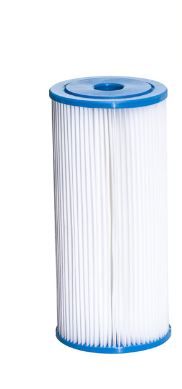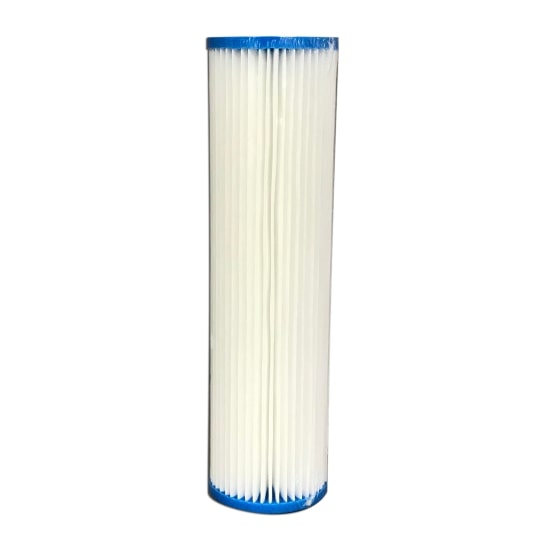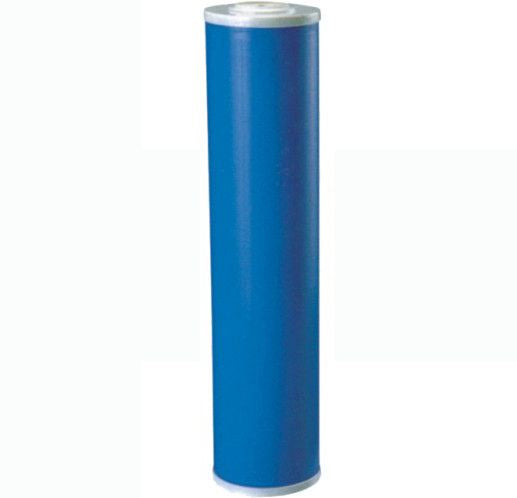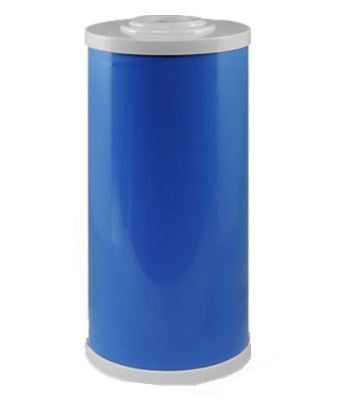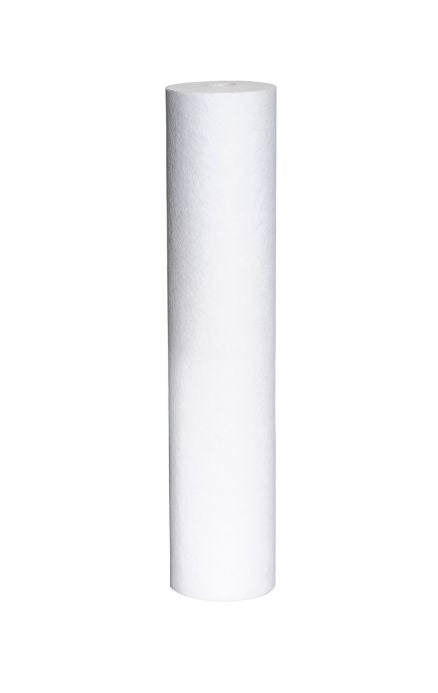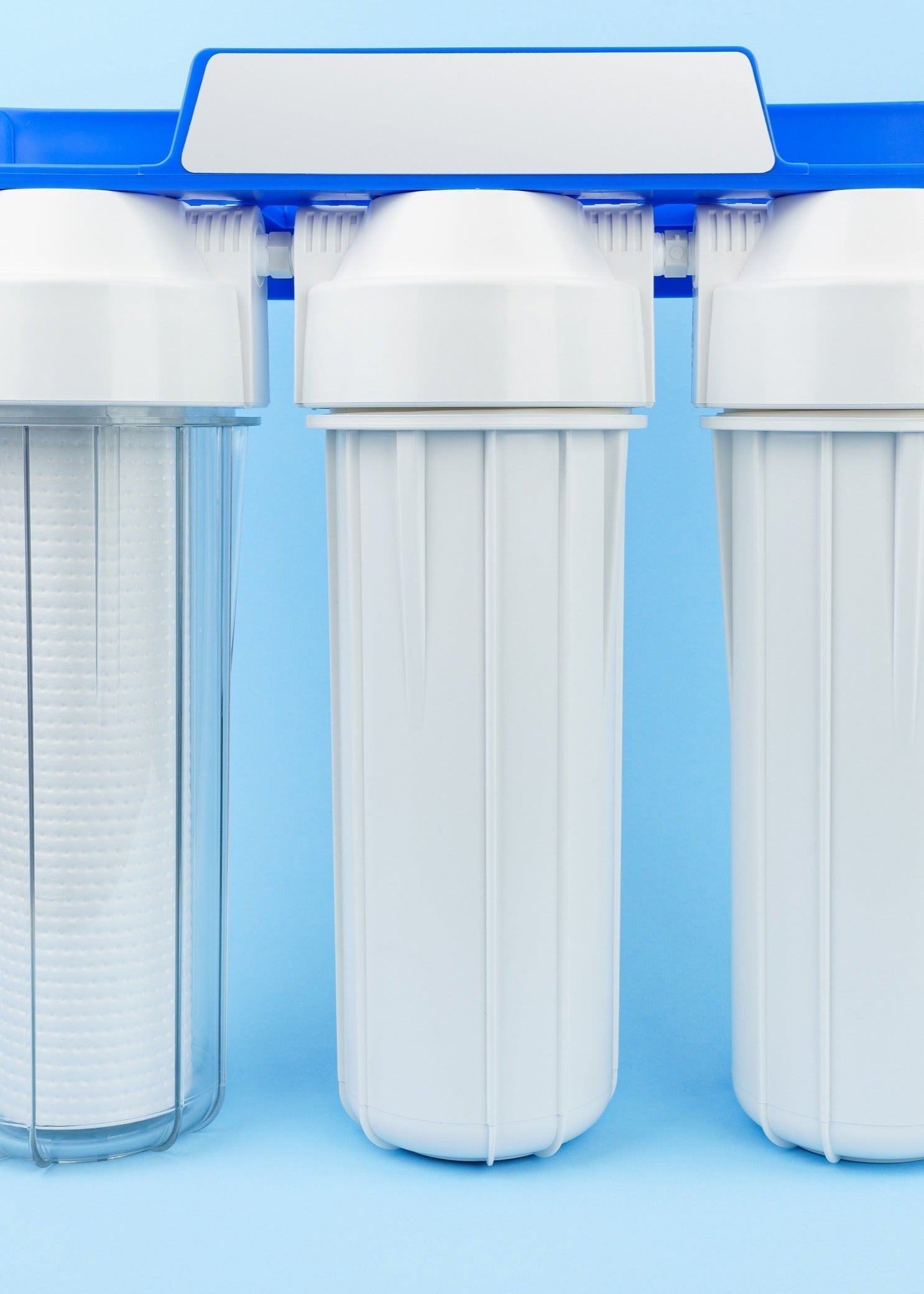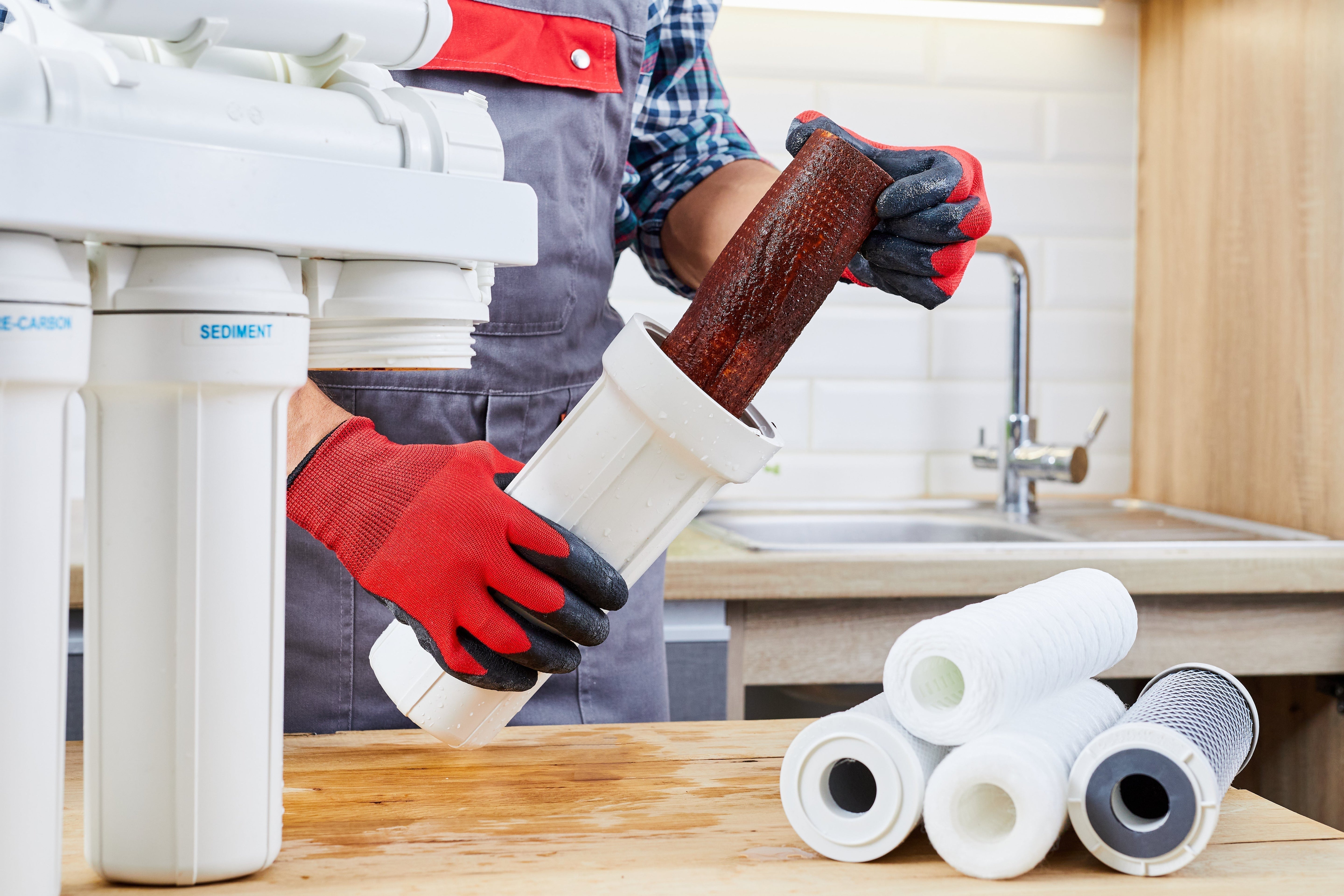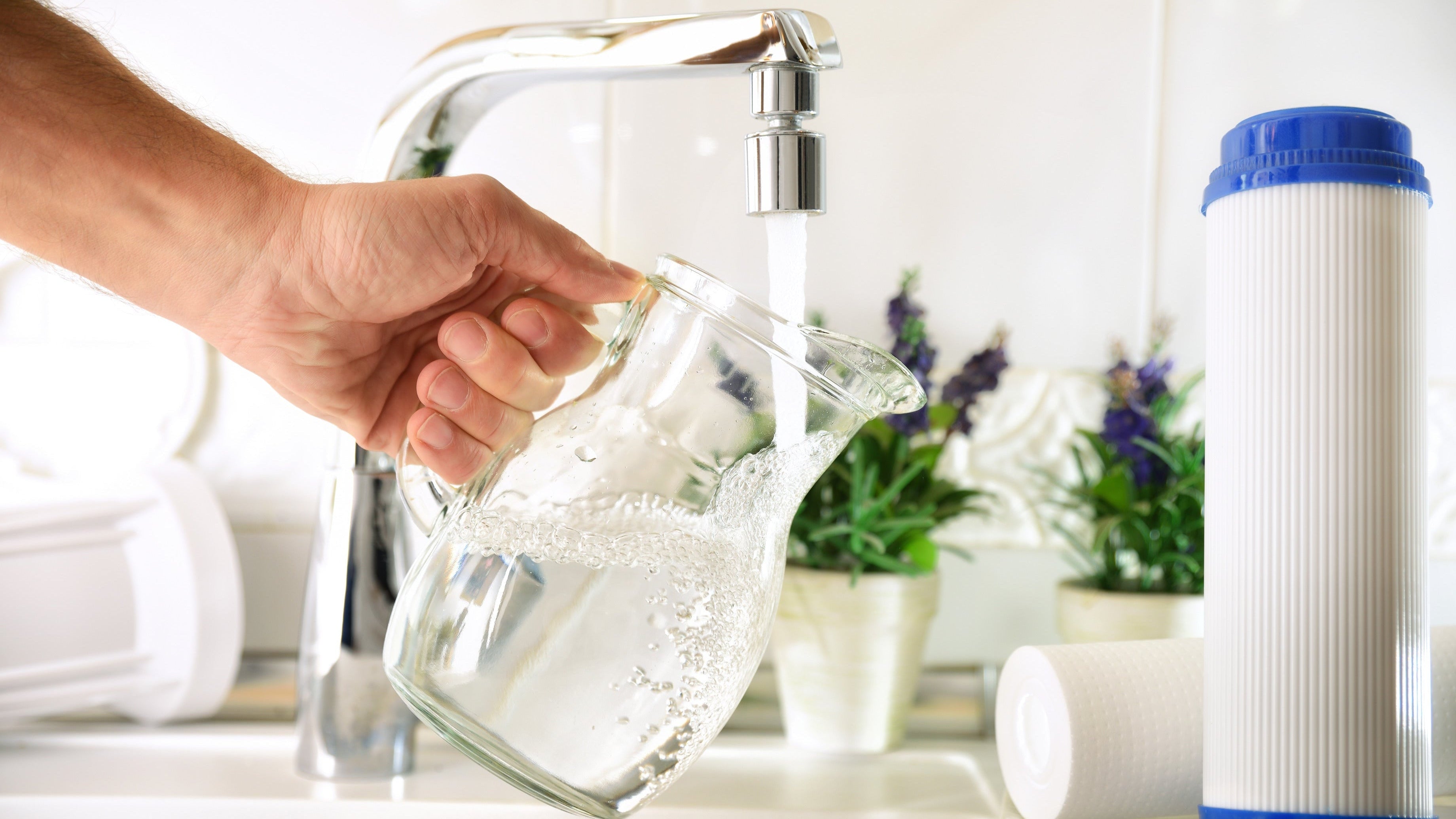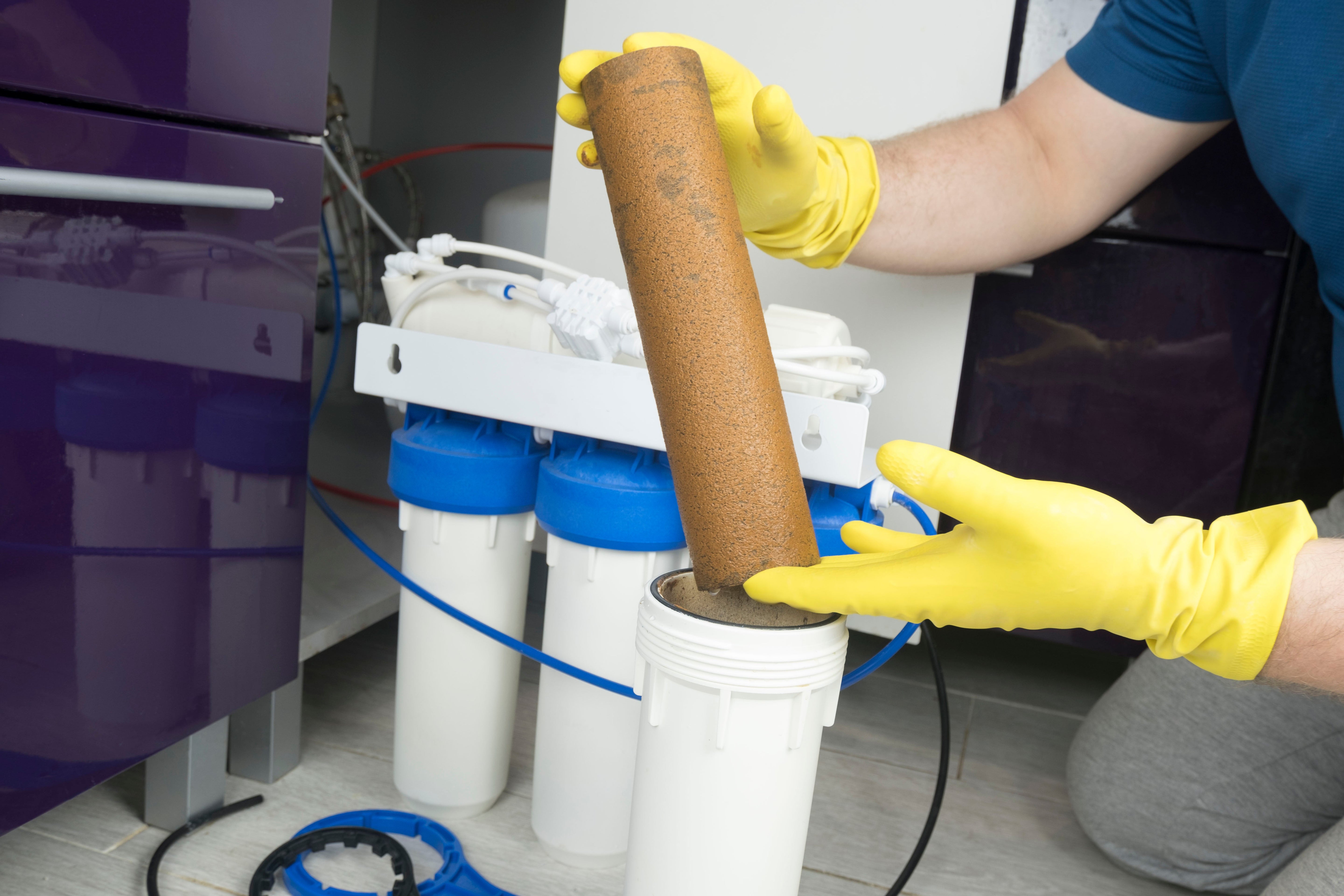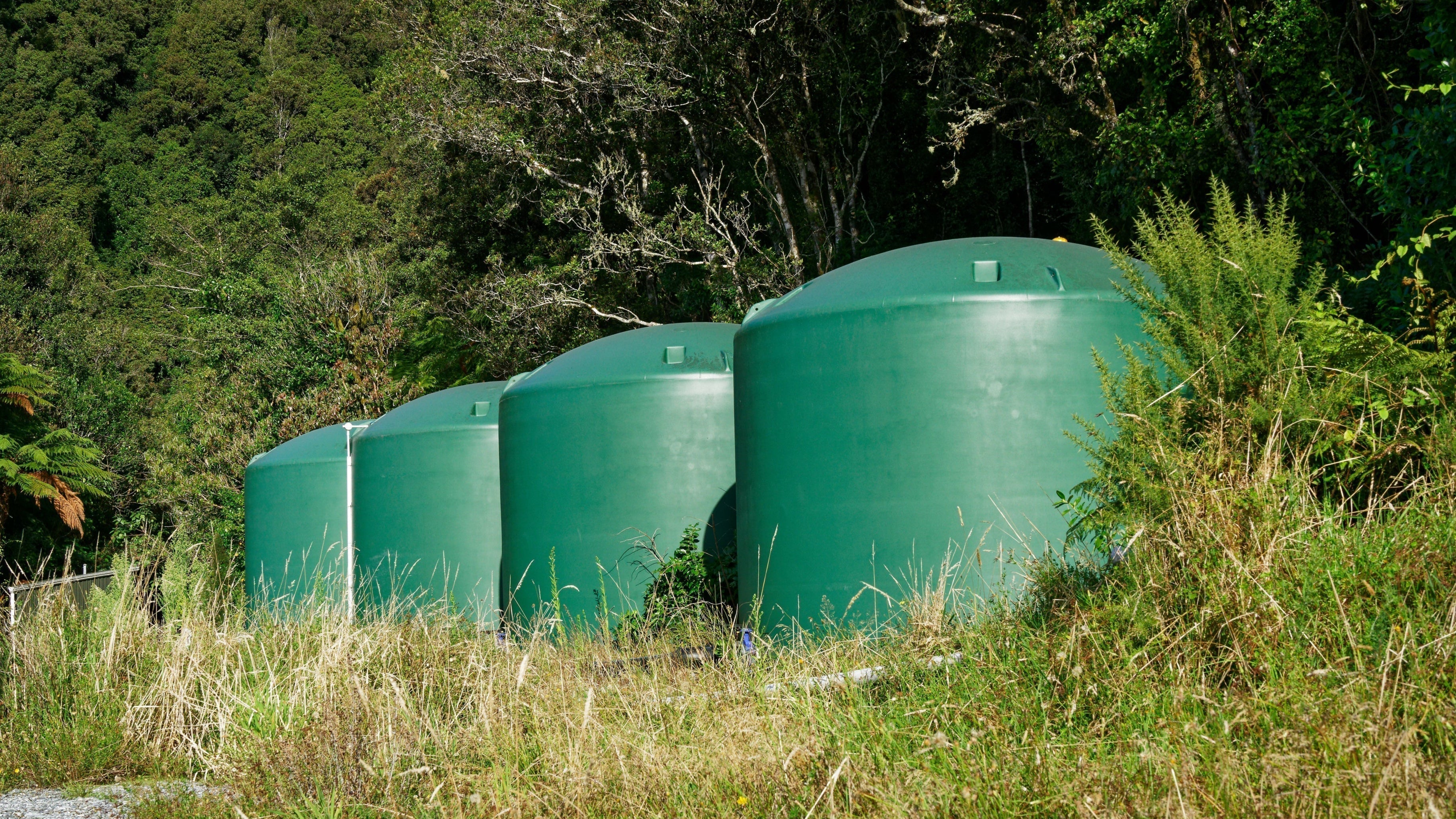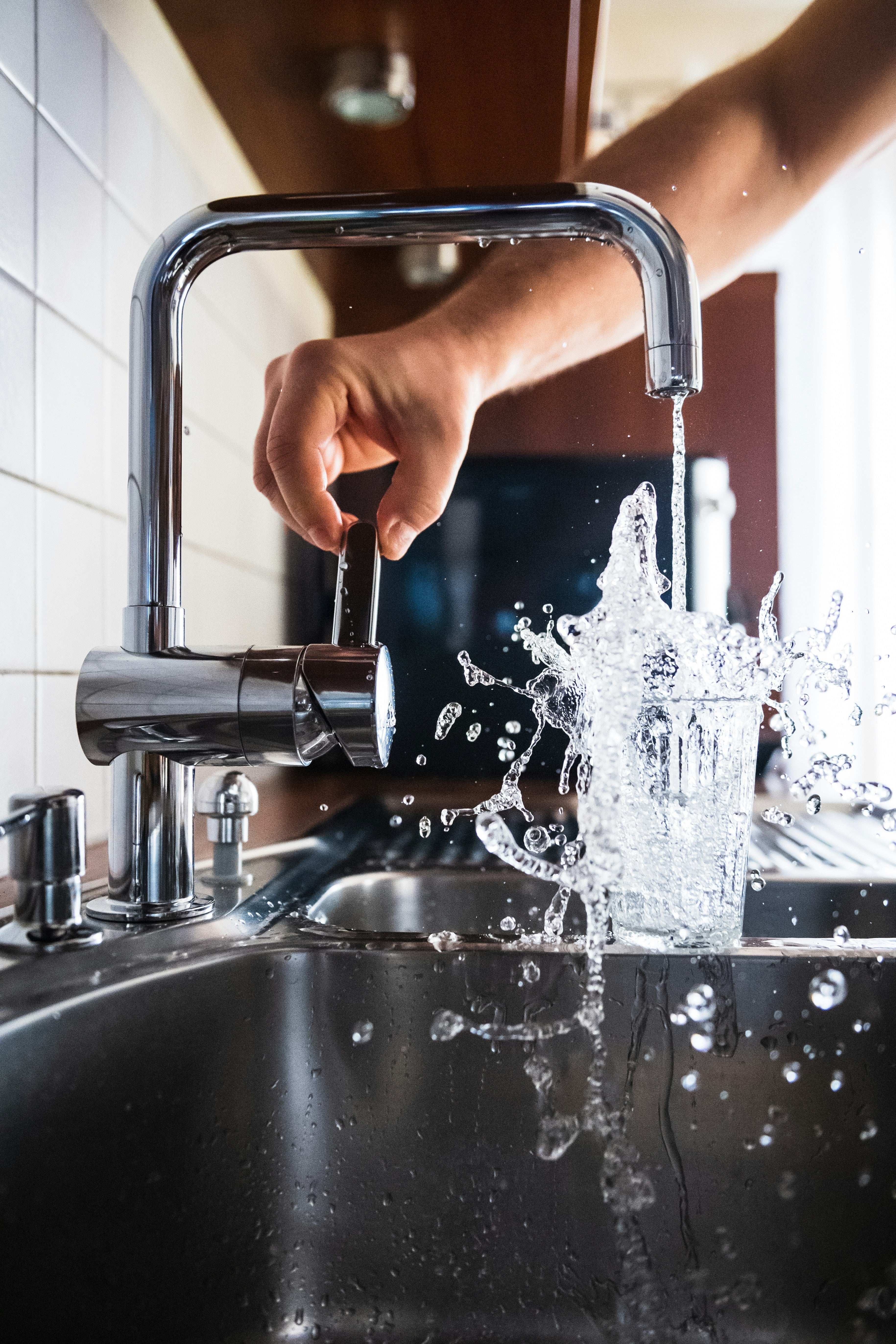
About carbon block water filters
A carbon block filter is made from activated carbon that has been compressed into a solid block. This structure allows the water to pass through the block slowly, allowing more time for contaminants to be removed. The block’s dense structure helps trap a wider range of contaminants than granular carbon filters, which are looser and have larger gaps between carbon particles. Carbon block filters can be used on whole house systems in conjunction with sediment filter cartridges, or underbench if you are looking for extra filtration to a specific area. These should be changed every 6-12 months depending on water volume or manufacturer instructions
How Does It Work?
The carbon block works primarily through adsorption, a process where contaminants stick to the surface of the activated carbon. Activated carbon has a large surface area with tiny pores that capture a variety of substances, such as:
- Chlorine and chlorine byproducts (which can affect the taste and odour of water)
- Volatile organic compounds (VOCs), which are chemicals found in pesticides, solvents, and industrial waste
- Sediment, dirt, and particulates
- Heavy metals (to some extent, depending on the carbon block's composition)
- Bad tastes and odours
- Improved Taste and Odor: One of the main reasons people use carbon block filters is to improve the taste and smell of their water. If you notice that your water has a chemical or chlorine-like taste or odour, a carbon block filter can effectively reduce or eliminate these issues by removing chlorine and other organic compounds that contribute to unpleasant tastes.
- Chlorine and Chloramine Removal: If you're on municipal (town) water, it’s likely treated with chlorine or chloramine to disinfect the water supply. While these disinfectants are safe at the levels used, they can affect the taste and odour of your water. A carbon block filter is particularly effective at removing both chlorine and chloramine.
- Chemical Contaminant Removal: Carbon block filters can remove a variety of harmful chemicals, including pesticides, herbicides, solvents, and VOCs that might be present in your water. This makes it especially important for people with concerns about chemical contamination in their water supply.
- Health Benefits: By removing harmful chemicals and contaminants like chlorine and volatile organic compounds, a carbon block filter can help reduce the potential for health problems. For instance, chlorine can irritate the skin and eyes, and some VOCs have been linked to respiratory issues. Carbon block filters are an affordable and easy way to remove these potential irritants.
- Sediment and Particulate Filtration: Carbon block filters can also capture larger particles like sediment and dirt. While they aren’t specifically designed for sediment filtration (that's what sediment filters are for), they can help catch larger particles that may be present in your water supply, improving its clarity.
- Better Water Quality for Appliances: If you use your water in appliances like coffee makers, refrigerators, or water heaters, carbon block filters help reduce the buildup of contaminants that might clog or damage your appliances. It also helps protect water-using appliances from scale and mineral buildup, making them last longer.
When Should You Use a Carbon Block Filter?
You may want to consider adding a carbon block filter if:
- You’re concerned about the taste or odour of your water—especially if you’re using municipal water treated with chlorine or chloramine.
- You want to reduce your exposure to chemicals such as pesticides, solvents, and VOCs.
- You live in an area with poor water quality and want to improve the safety and cleanliness of your water for drinking, cooking, or bathing.
- You want to improve the effectiveness of your existing filtration system—many people use carbon block filters as a secondary filtration stage, alongside other filters like sediment or reverse osmosis filters, to ensure cleaner water.
Pros of Carbon Block Filters:
- Effective chemical removal (chlorine, chloramine, VOCs)
- Improves taste and odour
- Captures particulates and sediment
- Relatively affordable and easy to install
- Long lifespan—when maintained properly, carbon block filters can last for 6 months to a year before needing replacement.
Cons:
- Limited to certain contaminants: While carbon block filters are excellent at removing chlorine and organic compounds, they don’t remove all contaminants, such as heavy metals (unless they are specially treated), bacteria, or viruses. If you need comprehensive filtration (like removing fluoride or heavy metals), you might need additional filters or a reverse osmosis system.
- Requires regular replacement: Over time, the carbon in the filter becomes saturated with contaminants and loses its effectiveness. Be sure to replace the filter according to the manufacturer's guidelines (typically every 6 to 12 months, depending on usage).
Conclusion:
A carbon block filter is an excellent choice if you're looking to improve the taste and quality of your water by removing chlorine, VOCs, chemicals, and some particulates. It’s particularly helpful for people on town supply water, but it can also benefit those with bore and tank water that might be contaminated with organic compounds. If you’re concerned about a wide range of contaminants, you may want to consider using a carbon block filter in combination with other filtration methods, like sediment filtration or UV treatment, for optimal water quality.
Browse our range of filters to get started with a carbon block setup. Or, get in touch for advice and services.
Rodney Water Filters ships water filtration products all around New Zealand. We also offer water filter replacement services in Albany, Whangaparāoa, Orewa, Red Beach, Dairy Flat, Waitoki, Helensville, Wainui, and Kaukapakapa (around the Rodney region of Auckland).

